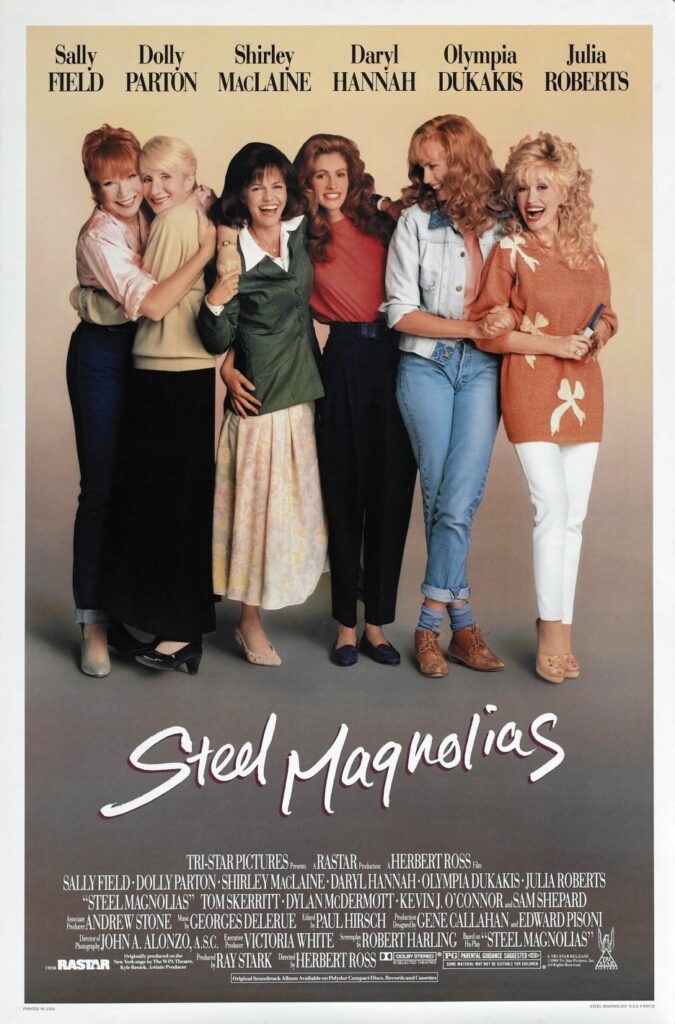[In this post: introduction to the stages of grief, how grief is commonly manifested in displaced MKs, how you can help them to find healing.]
Elisabeth Kübler-Ross. Heard of her? If you ever took Psych 101, you’ve probably been introduced to her work, but who remembers anything from those 101 college classes? The guys on my brother floor during their midnight raid? I remember them clearly. Everything else is a blur. Kübler-Ross wrote “On Death and Dying,” giving us a concise outline of the most common stages of grief. Denial. Anger. Bargaining. Depression. Acceptance. These are foundational to processing loss, and though we may not all experience them in that given order—nor necessarily realize we’re displaying them at all—there’s a good possibility that we do go through them at some point in our journey through loss. 
Back in college, I remember walking to Wheaton’s tiny movie theater to watch Steel Magnolias, a highly-hyped, summer-fluff movie. About 1 1/2 hours into the tale of southern quirks and angst, I realized that something was amiss. The row of cheap, faux-leather seats in which I sat was shaking with suppressed sobs. To be honest, I found the sniffles and shuddering breaths filling the room rather embarrassing—particularly as I too seemed to be fully engaged in shoulder-shaking tears.

Say what you will about Steel Magnolias—I loved it from the top of M’lynn’s over-teased hair to the bottom of Truvy’s size eight shoes. (“I wear a size six, but a seven feels so good, I buy a size eight.”) Take a look at the following clip in which Sally Fields, at her daughter’s funeral, masterfully expresses a handful of the stages of grief. Can you pick them out? Watch it to the end for a good laugh. Though the movie was nominated for 6 Oscars and won one, it was to Casa Blanca what Velveeta is to Gruyere. But oh the brilliant quotes it delivered! (I do apologize in advance for a couple of words in this clip that may be mildly offensive…)
Summer is the time of year when many MKs find the grief of losses the most difficult to tolerate. Whether for college or a host of other (sometimes traumatic) reasons, those who have just left their universe behind find that the lull of vacation months often allows for too much time to think. New wounds fester and old wounds open again as minds wander into the near or distant past. The accumulation of lifelong grief (from people, to places, things, customs, ways of life, climate, identity, etc. ), which is so common to the MK experience, can reach new heights in the dog days of summer.

Whether you’re an MK or an MK caregiver, you might see behaviors emerge that seem too intense for a given situation or completely disconnected from what appears to have triggered them. Looking back on the roller-coaster of extreme emotions that marked my younger years, I realize now that I was experiencing deep, stomach-knotting grief, but I didn’t know enough about Kübler-Ross’s stages, at that age, to identify them for what they were.
So…how might a displaced MK display the stages of loss? What should the MK and the MK’s friends/family be looking for? And what can we do to help a grieving nomad?
WHAT THE STAGES OF GRIEF LOOK LIKE FOR DISPLACED MKs:
DENIAL: I’ve seen this stage of loss most visibly displayed by MKs who were “ripped” from their place of belonging without advanced warning. Listen for statements like, We’ll come back once our support increases. Or once the war ends. Once mom gets through chemo. Once my parents’ marriage gets fixed. Once we’re finished with our time in our new mission field. Once I get out of college. This stage will often look like denial of the permanence of the loss. MKs will try to convince themselves that this is temporary and will soon be undone.

ANGER: Regardless of the circumstances that caused the loss, in this stage, the emotions will most often be summed up by “I hate” sentences. I’ve seen so many MKs “stuck” in this stage, their lives so consumed by anger that they seemed arrested in that destructive state. The hate they express is often life-alteringly intense. I hate God. I hate my parents for listening to him. I hate my friends for not staying in touch. I hate my new life… This is a dangerous stage. Hate sharpens grief, and unattended anger can leave permanent scars.
BARGAINING: Telltale signs will take the form of questions in this stage. If we spend two years in Ecuador, can we then come back to Zambia? Once the fighting dies down in our part of the country, then can we go back? If we pray really hard for dad to walk again? If I go to family counseling and talk a lot and do my part? If I show God that it’s okay for Him to have moved us around the world, then will He move us back home?”

DEPRESSION: This is the stage in which I spent most of my childhood, teens and early adulthood. I was engulfed in it. Buried under it. Eventually defined by it. Statements reflecting this stage often contain “never.” We’ll never gain enough support to go back. They’ll never sign a peace treaty. My brother will never recover from that accident. My dad will never stay faithful to my mom. The mission will never send us to a place I like. After college, I’ll never get to travel the world again. The feeling that life-as-we-knew-it is over can be crippling and eviscerating. Irrational too.
ACCEPTANCE: This isn’t so much a stage of grief as a victory over the debilitating responses listed above. Acceptance of losses for what they are isn’t a free pass to happily-ever-after. Instead, it is a new perspective in which grief undeniably exists, but no longer hobbles. Even at the age of 44, in moments of introspection, I still feel childhood griefs stirring inside. But they’ve been acknowledged and recognized, now. I know why they exist and understand their power. I will always miss the friends ripped from me and the places that feel like they’re carved into my DNA. But I’m okay with that now. I’ve made my peace with having lost and I’ve gained the ability to see how I’ve been blessed.
SUGGESTED RESPONSES FOR FAMILY, FRIENDS AND CAREGIVERS:
If you know an MK who is displaying any of the stages of grief, you may want to follow these simple steps. (Note the nifty acronym: A.C.E.S.)
ASK. Words remove the venom from grief’s sting. Allow the MK to express pain and loss. Seek creative ways to broach the topic in a safe environment. Will it still hurt? Yes. But unaddressed, it would maintain the power to shape an MK’s thinking and behavior. Ask questions. Listen actively. Soothe pain with friendship and trust. Then repeat. And repeat again. Ask—listen—soothe…
COMMUNICATE TRUTH. If you are close enough to the MK and trusted enough to assume this role, communicate truth. As you saw above, many of the responses to grief are irrational. Some border on delusional. Without robbing the MK of his/her dream of someday re-experiencing the beauty of what is lost, someone needs to impart perspective in a gentle, understanding way. Gingerly debunk his/her misinterpretations of reality. Carefully establish what a more likely outcome might be. Turn his/her thoughts toward gratitude for what was and fortitude for what’s ahead. Then revert back to step #1. Ask—listen—soothe. Ad nauseum.
ENGAGE. Grief tends to rob us of the ability to initiate. Help the MK you love to get out and get involved in real-world activities (as opposed to lost-world mourning). I’m not saying it’s going to be easy. It would have taken a brave friend with a bulldozer and a ticket to see Barry Manilow to get me off my rear and out of my funk when I was a teen. Be that loving bulldozer to your hurting MK. Be gentle. Be firm. Be faithful. Be patient. Be unrelenting. Know him/her well enough to determine what strategy might work. Persistence pays off. I’m living proof of that.
SEEK HELP. There’s something about the mission field that seems to foster a Messiah Complex. We like to be THE person with THE solution to whatever problems arise. Sometimes the best way to help someone who is suffering is to step aside and usher in someone more qualified than we. Pray for wisdom. As I mentioned before, grief that goes unattended for too long can become truly harmful. A trusted family friend, a counselor, a pastor. A person slightly removed from the situation is sometimes more able to help than someone too close to the pain. Don’t be afraid to seek external help. And please (please!) don’t rule out psychiatry for grief intense enough to warrant it.
In my seminars, I do a full hour on loss, a full hour on preparing for transition and another full hour on executing transition, so the above is obviously an incomplete overview of MK grief and loss. I would love for your thoughts to flesh out this discussion. Please use the comment space below to lend your own insight to this topic.
[NOTE: You can subscribe to this blog by sending an email to michelesblog@gmail.com and writing “Subscribe” in the subject line. You can also use the subscribe button in the right column of this page.]











lizzy
I was kind of shocked to read this and see how well you put into words exactly what I seem to feel every summer. I didn’t think many other people knew that feeling. It’s all so true.
But for me, it’s a slightly different twist on the feel, because I’m not the one who has been uprooted from the MK world; I’m the one that stays behind when all my friends go. Waiting behind in a hot, corrupt country while the friends grow wings and fly away from me is torture during the summer. I’m not saying I hate the country I’ve been raised and live in or that I haven’t made roots here. I just mean that it gets so much harder to wait and stay here, when I feel like everyone has moved on and I’m more than ready for my turn.
michele
From Julia, an adult who has just returned from work in a middle-eastern country: Since I came home two weeks ago I’ve gone through various stages of culture shock, but I think more than that I’m just grieving. Very much. I havent just left behind friends. these Mks were like my kids for some part. I feel like half my heart has been ripped out. I’ve definitely been in the denial stage, having hoped countless times to just wake up in my flat again, hearing the monkeys outside and being able to walk down the hallway again to give my girls a hug, to sit on their bed and talk for ages,…
And sometimes I just feel depressed. Like a big black cloud hanging over my head weighing down on me.
I feel happy, too- mostly when I m around other people, but as soon as I enter my home, the “job-lessness” after a year of 24h job life I have a hard time.